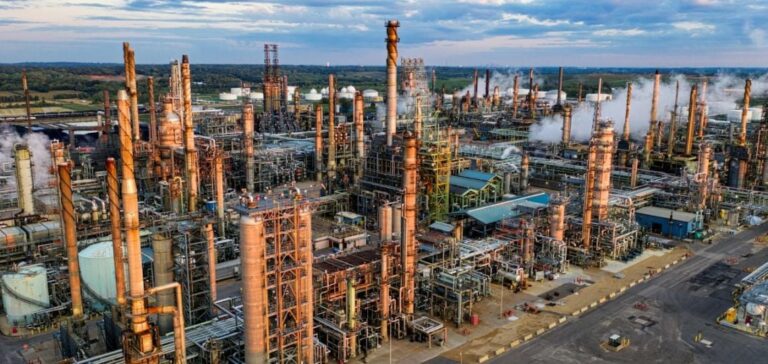The Olmeca refinery, located in Dos Bocas, Tabasco, starts operations in July 2024 after a series of delays and construction cost inflation.
The unit processes 65,046 barrels of crude oil daily, a fraction of its 340,000-barrel capacity.
Production is mainly diesel (21,511 barrels/day) and coke (8,775 barrels/day).
No gasoline volumes are recorded, which calls into question the facility’s immediate ability to reduce Mexico’s dependence on fuel imports.
Production targets not met
Pemex’s stated ambition for the Olmeca refinery is to eventually produce 175,000 barrels of gasoline and 130,000 barrels of diesel per day.
However, the start-up of operations shows that the infrastructure is encountering difficulties in meeting these targets.
The technical challenges involved in starting up a new refinery are numerous, and the case of Olmeca clearly demonstrates this.
The absence of gasoline production, crucial though it is, raises questions about Pemex’s ability to meet the needs of the local market.
Impact on energy strategy
Limited production and lack of gasoline volumes pose a problem for Mexico’s energy autonomy.
As national crude production declines, the Olmeca refinery’s inability to produce key fuels further complicates the strategy of reducing petroleum product imports.
The refinery’s role in national energy policy is crucial, and its success or failure will have a direct impact on the country’s fuel supply.
The refinery’s production results will also have an important political impact, as Mexico’s goal of self-sufficiency lies at the heart of the government’s energy policy.





















